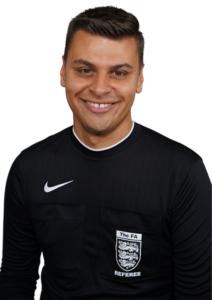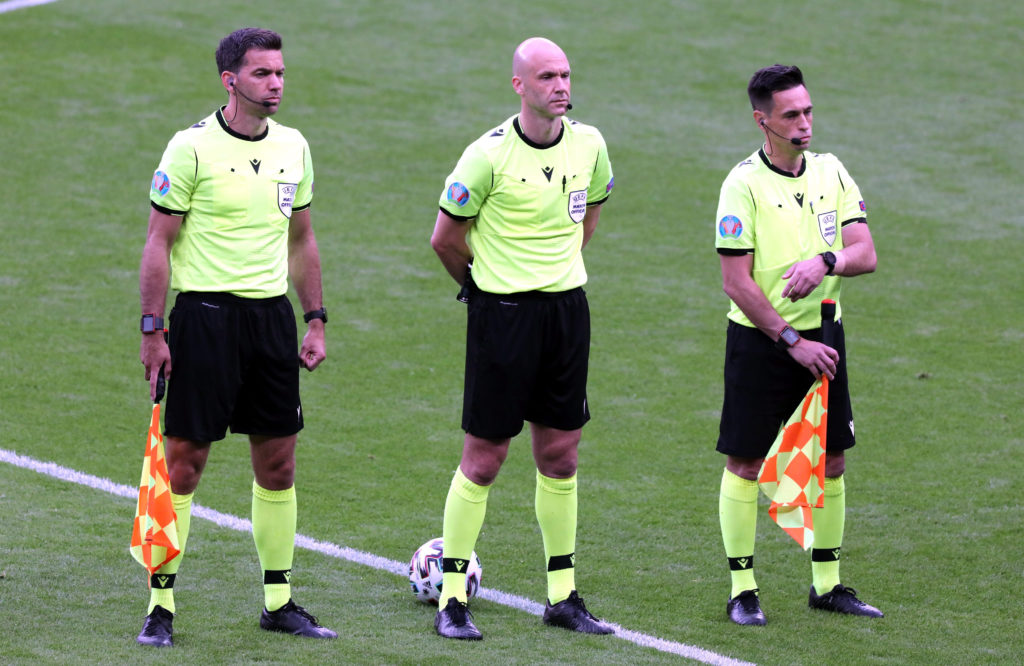The best refereeing teams in the world are made up of the best officials, each with the best skills and abilities that most referees can only dream of acquiring. Unfortunately, it isn’t enough for each team member to be great individually – they need to be able to bring all of their strengths together and work as one cohesive unit in order to be successful.
Here are 6 factors of how teamwork execution can break down, helping to uncover why a team of top officials can ultimately fail to achieve their goals – and to understand out how to avoid this for your own refereeing team.
Ineffective Team Preparation
The famous quote by Benjamin Franklin reads: “fail to prepare, prepare to fail.” This couldn’t be more true in the world of officiating. There are two key times when it comes to preparation, and both have crucial potential pitfalls:
Preparation During Training
The game is unpredictable. The best way to prepare for this uncertainty is to vary the types of practice and drills that referees use.
A good way to train is for officials to conduct practice matches amongst themselves, because this is going to best mimic what they will experience in a real game. If you use the same scripted practice/training drills & exercises over and over again, referees won’t get used to thinking on their feet, which is something they will have to do a lot throughout matches.
Preparation During The Pre-Match Warmup
A lot of the time, officials like to keep to themselves during the warm-up to “get in the zone.” However, this time just before the match is a good opportunity to go over any instructions discussed leading up to the big day.
Remind your colleagues that communication is key, and that they should make use of the time just before the match to clear up any misunderstandings about any pre-match instructions.
Ineffective Team Monitoring
In order to keep a team on track, they need good problem-solving strategies for when things go wrong.
Problem Solving
Reflecting on things that went wrong in the match isn’t enough to fix anything – officials need to identify how they can improve during their next performance.
The half-time period is a great time for referees to discuss how they can improve in the next half of the game. The officials should feel they are in a psychologically safe environment, meaning they feel able to voice their concerns to their colleagues without fear of backlash or embarrassment.
If referees don’t feel able to speak up about what is wrong, these issues won’t be addressed, and the same mistakes will continue to happen.
Working With New Colleagues
When working with new colleagues in your team, it can sometimes be difficult to “gel” because they won’t be used to everyone’s style of officiating.
When the officials don’t know each other well, it’s only natural that they won’t communicate as well, certainly initially. Without this communication, they can’t possibly perform well as a group.
There could also be a change in self-efficacy levels. The referees probably won’t feel as confident in their new team if they were used to performing well previously with another group of people. With low self-efficacy, officials become more reserved, and their performance declines as a result.
These changes to the appointments can even happen during the middle of the season. Officials can be injured later on in the season, which can easily disrupt momentum, not to mention the partnerships and strategies that were already established between colleagues.
Unhelpful Leadership
When it comes to leadership, referees look to coaches and referee managers to help them achieve success. Coaches and managers have the power to facilitate teamwork.
To ensure they get the best out of their officials, a coach should be calm, supportive and positive towards their referees. The officials also shouldn’t feel scared to make mistakes around their coach or manager, because this is when team cohesion begins to break down. Referees become too focused on not slipping up and don’t concentrate on working together, so performance starts to go downhill.
Poor Unity Among Team Members
It seems pretty intuitive that for a team to be successful, they need to work together in unity. When are team are not united, it could be down to two factors:
Differences in Objectives
Some team members can end up officiating as individuals rather than as a group. This can happen when the referees don’t agree on one common objective and start working individually in an attempt to achieve what they think is the most important goal.
This massively disrupts team cohesion because the officials don’t work as one entity, and instead work as separate beings. referees should ensure they establish and agree on one objective before the game starts, to make sure they’re all on the same page.
Clique Formation
Members of the team are bound to get on better with some colleagues better than others. However, having cliques in a team can make it divided. When this happens, it can cause officials to communicate less or negatively with those who are not in their clique, making their decision-making less efficient.
Social outings are a good way to get the team more comfortable with each other, which then translates into them feeling comfortable around each other on the pitch. It’s important for the team to build strong connections with each other in order to be cohesive.
Problematic Levels Of Confidence
Low levels of self confidence in referees could diminish teamwork because it can cause officials to start doubting themselves. This then makes the referees officiate more tentatively, and they can start to engage in avoidance behaviours such as communicating less and not making decisions.
Teamwork can also be affected if referees don’t have confidence in each other. For example, if this happens in a football team, players will be less likely to pass the ball to those they don’t have confidence in. In this way, it would be like competing with one less player.
Problems also arise when officials are over-confident. Those who feel like this might not see the need to work as a team, because they may think that they can carry the team on their own. This is never the case, and referees should always value the other members of their team as equals to themselves.
Final Reflections
Being able to work as a team is arguably one of the most important contributors to team success. By making referee coaches, managers and officials themselves, aware of these six factors that can get in the way of good teamwork, I hope to see refereeing teams thriving as one united group.
At The Third Team I work individually and in collaboration with different professionals where I have developed workshops and 1-2-1 sessions associated with Resilience and Mental Toughness Development to help referees. The workshops and 1-2-1 sessions are interactive, where referees are encouraged to open up and share their experiences to help themselves and each other.
Feel free to contact me if you’d like to know more about my workshops or 1-2-1 sessions and how I could help you or your officials.
Best Wishes,

Nathan Sherratt
Referee Educator & Managing Director of The Third Team

Nathan Sherratt
Nathan Sherratt, Referee Educator, Resilience Trainer and Managing Director of The Third Team. A Mental Toughness Practitioner based in County Durham, North East England.

